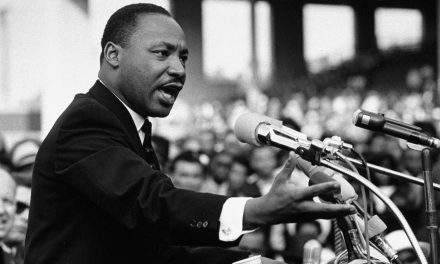Sports fascinate many people because of what athletes put at risk: their ability to participate and develop through intense focus and work the achievement of excellence in a particular sport. Watching athletes compete at the highest level of physical prowess and intellectual strategizing and concentration proper to their particular sport places into sharp relief how, to use Thomistic language, a human being attempts to become the most realized, most actualized, most perfect practitioner of something. Athletic competition serves as a lens into which one sees the human endeavor to fully realize one’s potential in concentrated form.
Sports also serves as a lens for the fragile nature of the human quest for excellence, too. Consider the London Olympics, where the difference between victory and defeat was often measured in barely measurable fractions, and done before an audience of millions, perhaps billions for the high-profile sports. Along with the happiness one may have felt when an athlete won was the relief that when their body could have failed, it did not. That is part of the emotional nature of watching sports, all that practice, all that effort, where an athlete perfected a sport to such a high level of excellence practice after practice, all that work may be for naught because of one small mistake, the physical failure of the body, or the broken mental concentration, which can happen when the athlete must get it exactly right that one time in competition. This competitive pressure is amplified by the commercial encroachment on what was once a celebration of amateur sport. The athletes know that the margin between victory or loss in a sport, especially a high profile sport, is also the margin between the one receiving material rewards at home or nothing. In some extreme cases, loss in a major sporting event could reap national opprobrium or even endanger the athlete’s life.
Perhaps this is what deters people from taking risks in life. The stakes can be so high that one is stopped by fear. The fear that all the effort one can and should make to excel at something risks being blown apart by making that one wrong move, that single mistake, or suffering a strategic failure of one’s physical and intellectual capacities at the time when one must succeed, with no second chance or hope of reward other than the prize sought.
Of course, one must resist the temptation (that some secondary schools have succumbed to) of the abolition of competition where there are no victors or losers. That is the mirror opposite of where high profile international sports is now. One extreme leaves no room for victory and the celebration of those who worked to achieve excellence in sport, the other extreme leaves little to no room for those who lose, grow from the loss and return to excel in sport, or move on with the character and abilities developed in sport to excel in life. In our necessary quest for excellence and the justifiable celebration of success and victory in attaining that excellence, the Olympics may serve as a warning of our global culture’s growing intolerance for losing, and forgetting the necessity of having great room for recovery and redemption which often is the basis for attaining future excellence and victory.


